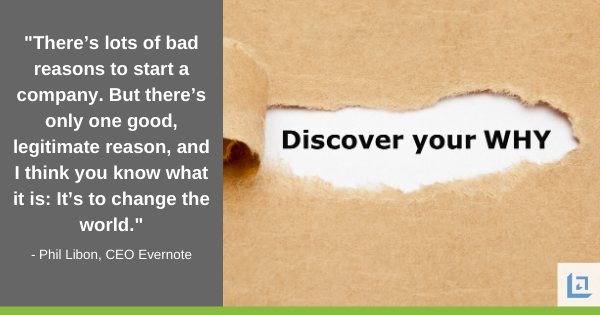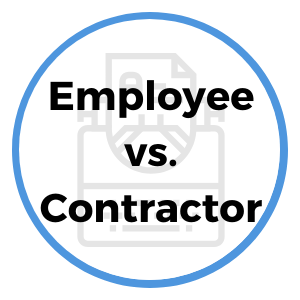- Home
- Business Planning Articles
- Small Business Idea
What's Your Best Small Business Idea?
Identify Your Calling
Your next best small business idea may be just around the corner.
There are literally thousands of different types of businesses in the marketplace. Each business provides a certain solution to address a need the marketplace is demanding.
On one hand this is good because it gives you unlimited choices for the type of business you can start. On the other hand, it may be overwhelming to try to sift through all of the different possibilities and choose the small business idea that is right for you.
In order to make this process easier, we have included a step-by-step procedure for narrowing your small business idea options.
First, let's start with you. Your search for the right business idea begins by learning the steps necessary to best assess your interests, skills, abilities, knowledge, and talents.
Once you have determined what you are interested in and skilled at you can assess the marketplace to see what is being demanded by the consumer.
Before jumping in to any new business you must take the time to get clear on what it is that you want. What kind of business will make you want to get up each day and get to work. Having a passion for your business is critical to your success.
“To be successful, you have to have your heart in your business, and your business in your heart.”
- Thomas Watson Sr., chairman and CEO of International Business Machines
The time you take in assessing yourself and the business before making a commitment is an investment that you owe yourself. The last thing you what to do is to start a business only to learn 6 months down that road that you made a big mistake.
So, to avoid making that kind of mistake we've provided a step-by-step process to help ensure that you don't have any regrets down the road.
The purpose of the following exercise is to assist you in fully thinking through your decision to move forward in a particular line of business. Take as much time as you need to complete each section to ensure your passion and skill-set is in full alignment.
“Some people dream of success, while other people get up every morning and make it happen.”
- Wayne Huizenga, owner of the Miami Dolphins
Small Business Idea Assessment
Basic ideas for your business most often come from the following sources:
- a spin-off from your present occupation
- existing hobby or special interest
- an answer to the question, "Why isn't there a ...?"
- identified shortcoming in the products or services currently offered
- a new or different way of using ordinary things
- an observed need
- a technological advance or changes in society or social custom
To help in your search for the right small business idea, take the following 8 steps and assess your interests, skills, abilities, knowledge, and talents to help you determine what you are best at.
Part 1: Assess Your Interests
Your interests are simply your likes and dislikes, your preference for one thing and your dislike of another. Begin by writing down what interests you. Start with broad categories.
- What are your hobbies currently? What were they when you were younger?
- What school courses did you enjoy when you were younger?
- Were there any jobs that you really liked or got a lot of satisfaction from?
- What kind of sports and recreational activities have you participated in and enjoyed?
- What do you do in your spare time? What would you like to do if you could?
- What do you consider to be a lot of fun?
Once you have created your list of interests, identify anything that you particularly dislike doing. List these activities below your interests along with the reasons for your dislike. Your interest inventory is not a rigid indicator of what you should do. It is only a starting point for helping you learn the range of your interests.
Note: It is important to not confuse interests with abilities and skills.
Once you have completed this list, review the activities and interests you have identified and look for patterns. Do any factors appear consistently? If so, circle them.
Part 2: Building Your Skills Inventory
The key to choosing a great business idea is having clarity - knowing and being able to articulate all the different skills you possess. The word "skills" is being used in the most general sense possible. You are not looking for skills which you and you alone possess in all the world. You are looking for any skill or talent you may have exhibited during your lifetime that has value. You will need to really open yourself up when making your list.
After you have developed your list of skills, circle the skills which represent your strongest abilities and which you take the greatest pleasure in performing.
Now see whether a pattern exists that can lead you to explore what your small business idea should be. Write down any patterns that appear.
Part 3: Recalling Your "Power Stories"
Everyone has memories of times in their life when they felt particularly "strong" and "on track". It may be the time you gave your first speech, or the day your child was born, or it may be the time you reached a goal you had previously thought impossible.
Whatever it is, these are the times when you felt the most proud of yourself, the most accomplished. We call these memories "power stories". Whether or not anyone else is aware of these times in your life is irrelevant. The important thing is that they matter to you.
Recall a list of seven personal power stories. Divide a sheet of paper in half. On the left side of the page, write down each of your power stories. On the right side, list the skills and talents you used in each story. What skills and talents reappear in each story? Circle those.
Part 4: Building Your Special Knowledge Inventory
List any special knowledge you have acquired according to the following sources:
- Learned in school, college
- Learned on the job or by actually doing at home or work
- Learned from seminars, workshops
- Learned by reading avidly
- Learned by talking to people
You should list as many special types of knowledge as you can think of. Circle the top 5 that you could use to roll out your next small business idea.
“So often people are working hard at the wrong thing. Working on the right thing is probably more important than working hard.”
- Caterina Fake, co-founder of Flickr
Part 5: Self-Estimates
On a scale of 1 (low) to 7 (high), rate yourself on each of the following traits. Be as objective as possible. Remember, there are no right or wrong answers. Try not to rate yourself the same in each ability.
| ___ Clerical | ___ Musical | ___ Teaching | ___ Managerial |
| ___ Technical | ___ Scientific | ___ Mechanical | ___ Empathic |
| ___ Building | ___ Numerical | ___ Sales | ___ Artistic |
Then list your top 4 traits with the rating for each.
Part 6: Dividing Up Your Time
You need to decide as a future business owner how you want to spend your time. Assign a percentage of time to each of the following categories making sure all three add up to 100%.
- With People:
- With Information:
- With Things:
Part 7: Why Do You Want to Start Your Own Business?
Write down all of the reasons why you want to start your own business. Be as specific as you can. Take the time to think about what the business could mean to you and your loved ones. How would the business make a difference in your life and in the lives of the people you serve.
Don't rush on this exercise. Take all the time you need to make an exhaustive list.
Part 8: Determining Your Priorities
As you begin combining your work and family responsibilities, make sure you know what your priorities are. Begin by listing any current time commitments and then estimate how much time you spend on these regular activities.
Think through your priorities. What activities must you continue? What can you let others do? What activities are expendable as you divert attention to your new small business idea?
Now that you have completed your personal assessment for helping to determine your small business path, pull the information together to see whether a clearer picture has emerged.
This is important so that you can gain a sense of what type of small business idea would best suit your skills, knowledge, business goals, and your reasons for wanting to start a business.
You should begin to see a pattern that leads to a specific small business idea or to a general category of business such as service, retail, or manufacturing.
NOTE: If you're looking for a small business idea that you can begin online, we highly recommend you take a few minutes and check out the many diverse and profitable online/home based businesses being created right now using a highly effective product called Solo Build-It! Yes, this is the same tool we used to create this site!
Best of luck in making your next great small business idea, fueled by your passion, a profitable reality!





